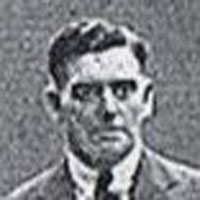Peter Hodge

Born: Dunfermline ? Died: Perth, 18th August 1934
26th April 1926 - 12th March 1932
Peter Hodge had to wait until Leicester City completed their League campaign before he could take up his appointment at Maine Road. Leicester’s final game of 1925-26 was on 24th April at Bury, and the following Monday Hodge moved to Manchester as City’s secretary-manager. The Blues still had two League games left to play and after victory against Leeds on 27th April, Hodge’s City had the chance to survive. A victory against Newcastle would have guaranteed survival but the game ended in a 3-2 defeat. The agony compounded when Roberts missed a penalty which would have guaranteed survival. City were relegated by a point. Clearly Hodge had arrived too late to make a serious change to City’s League season.
The following close season was spent planning for an immediate return to Division One, but 1926-27 proved to be highly dramatic and, with typical City style, the entire season came down to the final match. Sadly, City missed promotion by the tightest goal average margin in history. Their 8-0 victory over Bradford City on the final day was one goal less than the required number. It was a huge disappointment.
In 1927-28 Hodge’s Blues were promoted as Champions with 59 points. They were also the most watched side in England with an average attendance of 37, 468 – a figure higher than any other League side. Hodge continued to improve the side as the Blues embarked on a golden era of popularity and success during the 1930s. He had taken a team that seemed destined to struggle and created a side heading for glory. In 1929-30 the Blues reached third place in Division One, and in 1931-32 he guided City to an FA Cup semi-final where they were unfortunate to concede a goal in the final minute.
That goal ended Hodge’s City career as he had already agreed to return to his first love Leicester City. Leicester had announced his return to Filbert Street on 15th February 1932, but their agreement allowed Hodge to remain at Maine Road until City’s FA Cup campaign came to an end. City lost the FA Cup semi-final on Saturday 12th March and is believed to have been working at Filbert Street on Tuesday 15th March.
On 30th July 1934 while visiting his mother, Hodge was admitted to Perth Infirmary and died nineteen days later while still manager of Leicester City.
All history and statistical material has been produced based on the research and writing of Manchester football historian Gary James (www.facebook.com/GaryJames4). It is maintained by Ric Turner & Gary James. All text remains the copyright of the original contributors.
Gary's book, Manchester - the City Years: Tracing the Story of Manchester City from the 1860s to the Modern Day, is available to order on Amazon.